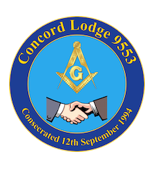Operative and Speculative Freemasons
In this article, you will hear many references to ‘Operative Freemasons’ and ‘Speculative Freemasons’. We know that we practice Speculative Freemasonry, but who were the Operative Freemasons?
Writers who are not familiar with the facts often speak of Freemasonry as having evolved from GuildMasonry, but that is incorrect. Guild-Masonry and Operative Freemasonry were never at any time united or the same, though they co-existed for several centuries. Operative Freemasons existed in large numbers long before any Guilds of Masons were formed, and even after the Guilds became powerful, the two were entirely distinct.
The Guilds were Fraternities, governed by voluntary mutual agreements to provide support to each other in poverty, and to protect each other from injury. Their two main features were the common banquet and the common purse. Many Guilds also had religious (sometimes secret) ceremonies to cement the bonds of loyalty and fraternity. They became involved in the exercise of trades, training of apprentices, and upholding the traditional rules of art. Guilds had many privileges, including the right to create and enforce their own regulations. For example, Guild-Masons had a monopoly of building work in their city or town, except for ecclesiastical buildings. No Guild-Mason could undertake work outside his town or city, and Guild-Masons had to hold themselves in readiness to repair the local castle or town walls. By contrast, Operative Freemasons were free to travel and work anywhere there was work for them.
Often the Operative Freemasons employed Guild-Masons to assist them on building projects, but usually only for rough, preparatory work, and called them ‘rough-masons’. Guild-Masons were not normally admitted to the Order of Freemasons unless they displayed an unusually high levelof skill or intellect. For the Operative Freemasons were not only artists doing a more difficult and finished kind of work, but an intellectual order, with a jealously-guarded tradition of science and symbolism.
From the later Middle Ages, Non-Operative ‘gentlemen’ began to join the Lodges as ‘Speculative’ Freemasons. Obviously, there must have been something much deeper in the symbolic rituals and secrets practised by the Operative Freemasons, to attract learned gentlemen to their Lodges. Likewise, if their secrets were only meant to permit the Operative Freemasons to recognise each other then they would not have admitted the Speculative gentlemen. The history surrounding the introduction of Speculative Freemasons into Operative Lodges is somewhat vague, but this should be enough of an explanation to appreciate it.
